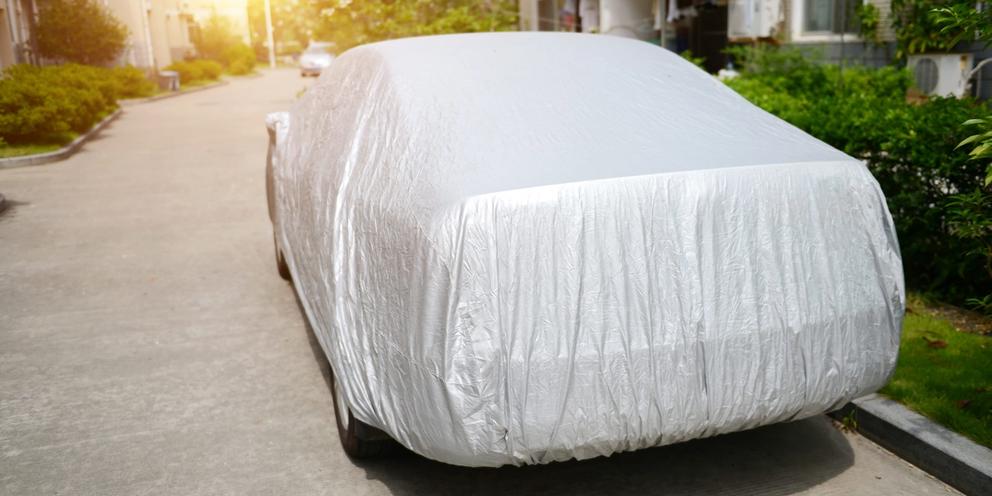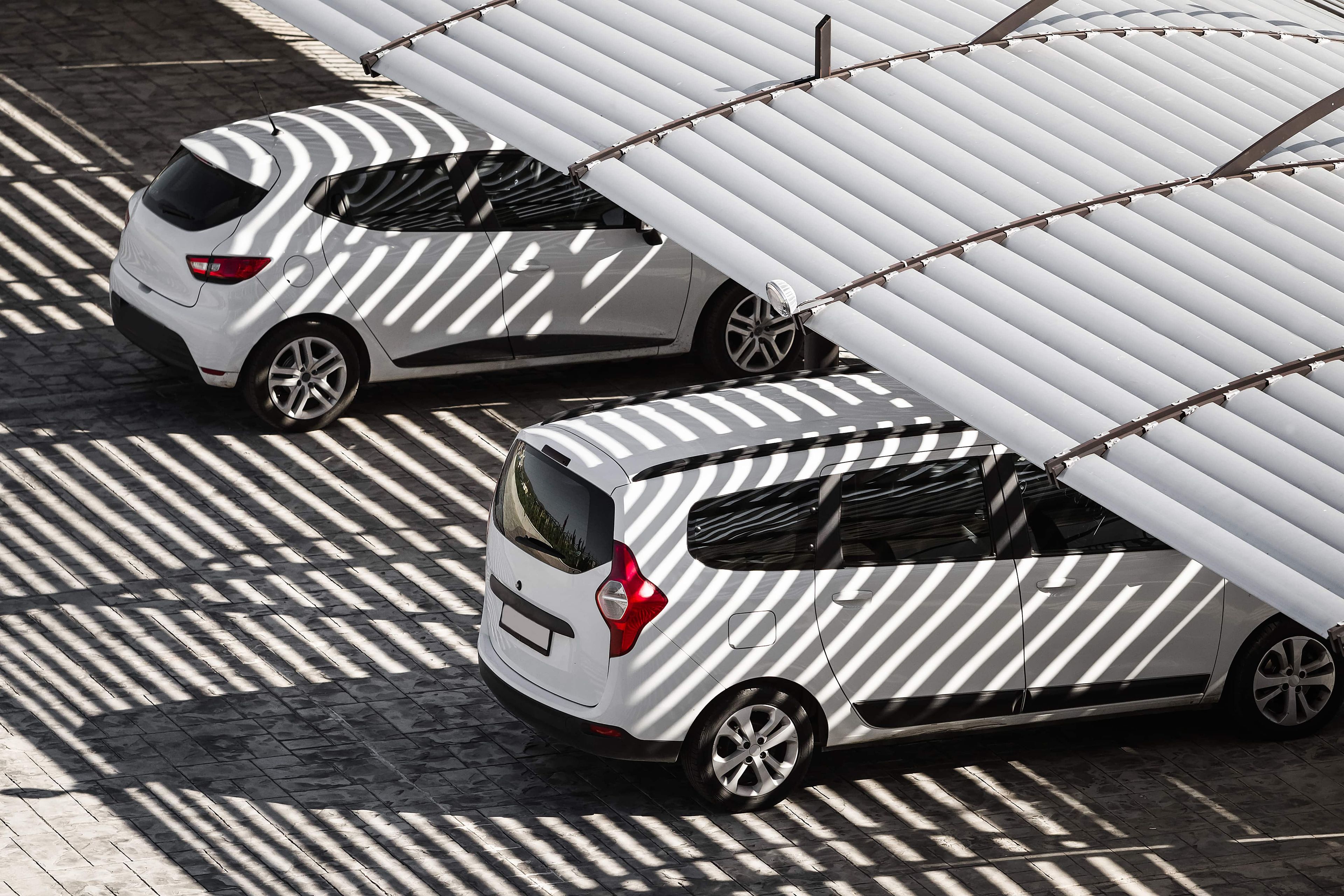
A Car Owner’s Guide to Finding Long-Term Vehicle Storage
Source: hxdbzxy/ shutterstock.com
Classic car collectors and general car enthusiasts often find themselves holding onto a car without driving it frequently. This is especially true for older vehicles they only bring out for special occasions or for repairing. It’s also common for owners to put away convertibles or two-wheel-drive vehicles for the winter in cold climates. Sheltered storage is also necessary in hot areas, where prolonged exposure to sun and storms can damage a car’s exterior.
No matter your reason for needing storage, finding a place to keep your car can be challenging. Renting vehicle storage space is a popular option because it allows you to keep your car without having it take up valuable space at home. These storage facilities come in all shapes and sizes, and many of the best options aren’t just for cars. The options vary widely, depending on your budget, location, and preferred distance away from home or work. In some regions, your options will be limited, and you’ll need to get creative with how you protect your car and prepare it for storage.
Finding Your Options
The internet is usually the best place to find up-to-date information on local vehicle storage services. Use your search engine or map application to pull up a list of relevant storage sites, and then scroll through their websites to compare pricing and other details.
Unfortunately, not all small local storage companies have detailed websites. In some cases, you may have to call and ask about vehicle storage options. These smaller companies sometimes have the best rates, so make sure to reach out to them. If you’re active in a classic car collectors’ community, your fellow collectors may have a local recommendation for storage as well. They may be your best resource for finding indoor storage that’s vehicle-friendly and easy to access when needed.

Source: OlegMemo/ shutterstock.com
Indoor vs. Outdoor Long-Term Storage
Full outdoor parking, including businesses that offer spots in their parking lots for rent, offers little protection from the elements or vandalism. You can compensate for this with a high-quality car cover that features a waterproof coating to repel moisture and a padded interior lining to protect the paintwork against minor dings and scratches. Some parking lots will have fences and 24/7 security to help keep out criminals.
If you’re primarily concerned about sun and dirt, you can also find enclosed or covered car storage spots. These are usually less expensive than fully lockable indoor units. They’re an excellent option for warmer and drier climates. However, indoor units offer better protection from snow, rain, and rodents. They also are more secure, especially if they are individually lockable. Some indoor units are climate controlled, making them better options for storage classic or luxury vehicles in very hot and cold climates, but regions that are mild year-round may not need climate control.
Protecting Your Car
Your preventive maintenance needs will vary, depending on where you store your car and how long you plan on storing it. Outdoor cars should be covered to protect them from the elements, especially sunlight. Sunlight can fade the paint on a car, and excessive rain and snow can rust exposed metal within a few months. An outdoor car cover with a silver outer layer reflects the sun’s rays, which prevents the paint from fading and protects the car’s sensitive internal components from heat damage. For cars stored outdoors during winter, a weatherproof car cover prevents moisture damage from precipitation and reduces the risk of your windshield cracking due to extremely cold temperatures.
Even indoor vehicles should be kept covered to protect them from dust and excessive moisture if they will be left unattended for more than a month. Get one of the best indoor car covers for classic cars to keep your investment in top condition. Ensure the cover has an elasticized hem for a snug fit and a soft inner lining to protect against scratches, and that it is made from breathable material to prevent mold and mildew from developing.
If you’re leaving your car in one place for more than a month, both indoor and outdoor storage lots require you to remove the tires or put the car up on tire jacks to prevent flat spots from appearing in your tires. Also consider removing the battery to keep it from dying, but place it on wood or cardboard instead of a concrete floor. You can also attach the battery to a trickle charger to prevent the battery from losing its charge. Leaving a full tank of gas helps prevent corrosion by keeping the sides of the tank covered. Add a fuel stabilizer tablet if leaving the car off for more than three months.
Although insects and small animals like rats are more of a concern outdoors than indoors, you should still take some basic precautions in both scenarios. Cover up the tailpipe of the vehicle and any other large openings. Clean out the inside of the car thoroughly since any crumbs left inside may encourage rodents and bugs to sneak in.
Using Regular Storage Units
Technically, you can store your cars in a storage unit that’s not specifically designed for vehicles. However, some facilities may have special rules for car parking and retrieval. Double-check and ask ahead if there are any additional fees for cars. Most small storage units are only 10’ long, which is too small for cars. The units’ width varies, too, and any unit less than 8’ wide will also be challenging to get in and out of comfortably. Look closely at the dimensions of the unit and ask the property owners about their options.
You also need to check to make sure you can drive and park the car inside the unit. If the rows of storage units are very closely packed together, you may be unable to properly maneuver your car. You may be able to request a unit at the end of a row or near the front of the facility to make maneuvering easier, but the company might not be able to accommodate that request.
Getting the Right Size
Small cars are just under 15’ long, while pickup trucks and SUVs are closer to 18’-20’ long. Conversion vans are sometimes just over 20’ long, making it a challenge to find an appropriate spot for them. Almost all cars can fit into spots 10’ wide, and many can fit comfortably into units 8’ wide, which is the size of a single garage door. Most cars will also have no problem fitting into a 7’-high storage unit or covered parking spot. Conversion vans and other tall vehicles can be up to 8’ high, though.
Facilities that specialize in car storage often have multiple space sizes available, especially if they offer enclosed or fully lockable units. Lengths start at 15’ and go up to 20’ or even 25’ feet for conversion vans and small boats. Width varies but is typically 10’ wide to make it easier to install car covers and perform other maintenance.
Even if you know your car’s approximate measurements or check the measurements for the model online, it’s wise to measure your car yourself before reserving a storage spot. This is especially important for larger vans, which often have both low-top and high-top versions or extra-wide versions available.
Monthly and One-Time Fees
Generally, any kind of storage unit will charge a monthly fee, but some charge annually. These fees vary widely, according to the location, size, and design of the unit. Covered or indoor units are almost always more expensive, especially if they allow 24/7 access. In many cases, storage facilities have a minimum contract length of six months to a year. While you won’t be obligated to keep your car in the space that entire time, you will be responsible for paying for the space for the length of the contract. Attempting to cancel the contract early may result in a sizable cancellation fee.
Some facilities may give you a monthly discount if you sign a longer contract, but this comes with a longer commitment and possibly a larger cancellation fee as well. Also, look for hidden charges like one-time or annual administrative costs and cleaning fees. While a one-time administrative fee is standard, ongoing hidden charges are unusual and should be avoided.
Look closely at the contract language to verify your rights in case of a payment dispute or another issue. In some cases, failing to pay the monthly storage fee results in the car being seized until the balance is paid or it can even be auctioned off. Ensure the facility owners have a backup phone number to contact you or a relative in case of an issue with payment.

Source: AlexandrinaZ/ shutterstock.com
Long-Term Storage in Cities
Many parking garages in cities have long-term monthly passes available, and these facilities may be the most convenient if you live downtown. However, they are also vulnerable to break-ins and thefts. Some parking garages may also have policies against putting your car on jack stands, which is the best practice for long-term storage.
Look for a facility that specializes in long-term storage and which has highly secure individual locking units. Although these facilities may have limited hours, they will be safer than a standard parking garage. Ask them about their security and whether they have staff on-site 24/7. If you can’t find a suitable location in the city or the options are very expensive, look for a less-local option. Driving out to a nearby suburb for storage may be worth it if you can get someone to drive you back and the overall monthly cost is significantly lower.
Check User Reviews
Like with any service, most storage facilities will have at least a handful of online reviews. Instead of checking their website for testimonials, get unbiased reviews from Google Maps or Yelp. Although sometimes these reviews aren’t entirely accurate, you can at least take note of general trends of positive or negative experiences. Look for user reviews regarding ease of use, the quality of the facilities, and security issues. Also, note any reports of indoor storage facilities having mice or other rodents because they can do significant damage to your car.
If there are a high number of recent reviews reporting problems with the company or facility, look for a different option. Keep in mind that sometimes new owners or managers will overhaul a facility and make significant improvements. Older reviews should be taken into consideration, but more recent reviews hold much more value.
Storing Your Car in Rural Areas
If you live out in a very rural area, finding appropriate long-term storage may end up being a struggle. Although even rural areas tend to have self-storage units within driving distance, they may not be large enough to store your car, especially if you have a truck or van.
It seems easy to keep your classic car on your own property, especially since that allows you to access it whenever you want. However, storing your vehicle takes up valuable space in your garage or in your yard. Plus, some homeowners’ associations and local ordinances may try to prohibit you from storing a car in your driveway or yard long-term. It becomes even more of a challenge if you have multiple cars to store. You can still do it if you have enough space, get the best car covers, and invest in the same essential preparations you would do before storing the car in a lot.
A Multitude of Options
Urban and rural areas have unique challenges for parking and storage options, but, no matter where you live, you’ll find at least one viable option for long-term car storage as long as you’re flexible on cost and distance. Most ordinary self-storage companies have car-sized units, and specialized lots have more precise sizing so you can get exactly what you need without overpaying.
Whatever you decide, make sure to invest in proper protections for your car. While sunlight and dirt are more of a concern with outdoor storage, even indoor storage works best when you use a good-quality car cover. Whether in short- or long-term storage, for the ultimate protection for your car, explore the range of premium semi-custom and custom car covers at CarCovers.com. Find a car cover with the perfect fit using our convenient search tool or call us at (800)-385-3603 for more information on our custom options.
Updated